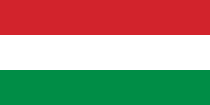mLearning project /hu-img-leonardo-logo-small/$FILE/leonardo-logo-small.gif)
COMMISSION OF THE EUROPEAN COMMUNITIES
DIRECTORATE-GENERAL EDUCATION AND CULTURE
LEONARDO DA VINCI
Community Vocational Training Programme
Second Phase: 2000-2006
Mobile learning: the next generation of learning
Pilot projectLink to the project's central web site
http://learning.ericsson.net/mlearning2/
Partners
| Country code | Name of organisation |
| IE | L M Ericsson |
| DE | FernUniversität-Gesamthochschule in Hagen |
| HU | Budapest University of Economic Sciences and Public Administration |
| IE | Distance Education International |
| NO | NKI |
A recent report from Gartner Group (‘The Mobile Scenario: Mobile Business and Technology Trends’) estimates that by year-end 2003 there will be more than 0.5 billion data-enabled mobile handsets in use worldwide. The same report also indicates how these mobile handsets will create the first ‘always on’ generation of technologically enabled citizens who will spend the majority of their time in close proximity to Web access and e-applications. The purpose of this project is to harness current and new technologies to provide new methods of learning and training that are available to all who wish to be part of the ‘always on’ generation). The innovation of this project is not that it develops new tools for learning, rather that it harnesses the capabilities of a set of readily available tools (mobile telephone handsets and PDAs) and the possibilities of the underlying technologies to increase access to and enjoyment of education and training.
To meet this end this project proposes to develop and trial mobile learning (mlearning) courses for current and new mobile telephone handsets where mobile learning is defined as the provision of training courses via wireless devices – PDAs (Personal Digital Assistants), smartphones and mobile telephones. These courses will be developed as part of a fully-functional mobile Learning Management System (mLMS) and the courses will be trialled and evaluted and the results widely disseminated.
In a previous project From e-learning to m-learning a number of the partners had considerable success in designing pedagogical scenarios, developing courses and trialling them with real students for both PDAs and mobile telephones. This project builds on the work of the previous project by extending the boundaries of mobile learning through the harnessing of current and soon-to-be-released technologies. These technologies (so called GPRS, HSCSD, 3G) and the power of the accompanying handsets, offering functionality that we are familiar with on our desktop and laptop PCs such as email, web-browsing capabilities, streaming audio and video, multimedia messaging (MMS), open up a rich vein of possibilities for mlearning that this project proposes to exploit.
For mlearning to develop as a vibrant sector of education and training, and for Europe to claim leadership in leading innovation in mlearning, courseware need to be developed for the new ‘always on’ handsets incorporating functionality as listed above. Ericsson, through its telecommunications and elearning expertise, in co-operation with its partners who have performed innovative work in the area of mlearning, propose to exploit available and new technologies to meet the needs of elearning and future mlearning providors and students. In the previous project the first building blocks of an LMS for mobile devices, telephones and PDAs, were put in place – it is now time to perfect this work and to test the premise of developing content once for delivery to a variety of mobile handsets and devices.
Terminology: GPRS: General Packet Radio Services, HSCSD: High Speed Circuit-Switched Data, 3G: Third Generation, MMS: Multimedia Messaging

